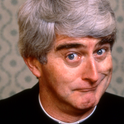Can it really be 30 years since the release of Quentin Tarantino’s directorial debut Reservoir Dogs? He seemed to be everywhere in the 1990s: the high-school dropout and video-store savant credited with turning around the careers of C-list performers; a scholar of trashy B-movies whose plots, techniques and kinetic energy he filched with the guile of a hip-hop DJ sampling old funk records; a shame-free apostle of glammed-up violence that made lots of money for Harvey and Bob Weinstein’s Miramax. No student hall of residence was complete without posters of his films lining its walls.
To his critics—and there were many—Tarantino was all style and no content. He was accused of being a nihilist, a sexist, a peddler of racial kitsch. Stuart Jeffries, in his recent cultural history, Everything, All the Time, Everywhere (2021), refers to him as “a high priest of post-modernism” whose output is such an echo chamber that it ends up “deflecting thought and encouraging acceptance of the self and the status quo.”
For a long time Tarantino, who turns 60 next year, has insisted that he will only make 10 movies. His most recent, Once Upon a Time... in Hollywood (2019), was his ninth. (Kill Bill, released in two “volumes”, was intended to be a standalone feature.) Writing is his passion these days: a novelised version of Once Upon a Time sold well. Now he has published Cinema Speculation, a series of interlinked essays that pay tribute to the American New Wave of the late 1960s and 1970s on which he was weaned.
The book includes gabby, informed celebrations of Bullitt—“one of the best directed movies ever made”—and of films such as John Boorman’s Deliverance, Brian De Palma’s Sisters, Martin Scorsese’s Taxi Driver, Paul Schrader’s Hardcore. He champions Sylvester Stallone’s Paradise Alley, a wrestling drama set in 1940s New York, which he recalls hailing as “one of the greatest directorial debuts of the seventies”. There seems to be no shootout, fight scene or bloody action sequence he can’t describe in vivid, frame-by-frame detail. The movies he likes are often “fucked up” or full of “wild shit”; he is less drawn towards “speechifying” or intellectual debates.
Tarantino calls himself a “brash know-it-all film geek” and isn’t kind to the critics who dismiss the movies or genres he adores. “Snide assholes” is one of his milder jibes. But while he can be overly feisty, few pages go by without a telling insight. Reflecting on his heroes, like Don (Dirty Harry) Siegel and Sam (Straw Dogs) Peckinpah, he says that he and his fellow violence-choreographers Eli Roth and John Woo “make genre films because we love genre films. They made genre films because they were good at it and that’s what the studios would hire them to do.”
Once, when describing to his fellow video-store workers the types of movies he dreamed of making, he cited the opening scene of Pedro Almodóvar’s 1986 film Matador. Remember? That one where “a character masturbates to a montage of the goriest scenes in slasher films”? At the same time, paradoxically, he abhors the “juvenilisation of cinema”—something that he believes started in the 1980s and was a “distinctly American problem”. He thinks the British were luckier because we had Alan Clarke’s Made in Britain, Alex Cox’s Sid and Nancy and Stephen Frears’s My Beautiful Laundrette.
Tarantino has often been challenged for his liberal use of racial epithets and passion for Blaxploitation films. “If you’ve made money being a critic in black culture in the last 20 years,” he once boasted, “you have to deal with me.” In Cinema Speculation, his fondest memories are of going to Californian movie theatres with all-black audiences as a child and hearing people yell profanities at characters they didn’t like. There’s a lot of psychosexual stuff—he talks about a three-year stretch during which his mother dated only black men. He also attacks Columbia Pictures for insisting Schrader water down his script for Taxi Driver. (In the original, everyone Travis Bickle kills at the end is black.)
Is Tarantino cocky? Without a doubt. “If you’re reading this cinema book, hopefully to learn a little something about cinema, and your head is swimming from all the names you don’t recognise, congratulations, you’re learning something”, he writes. Still, it’s hard to begrudge him his vainglory. In an era of digital projection, his love of film—as film—is endearingly evangelical. His belief in cinema as a directors’ medium is a welcome counter to modern streaming platforms and their focus on writers. Tarantino may no longer be as fashionable as he was in the 1990s, but we’ll miss him greatly if he gives up movies for the printed page.












